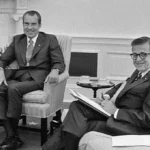Blog Post
What does the Brett Kavanaugh nomination mean for Roe v. Wade?
By Jonathon Van Maren
As most of you will have already heard, last night President Donald Trump announced the nomination of Brett Kavanaugh, a judge on the DC Circuit Court of Appeals, to the Supreme Court of the United States. Predictably, the Left immediately melted down, with nearly every abortion organization in the country announcing that Kavanaugh would be another solid anti-Roe vote on the court. Abortion in America could be over, they promised, and millions of people will die—unless Kavanaugh’s nomination is blocked. As Erick Erickson noted, that is a risky and dangerous thing to say in this volatile political climate. After all, what is the proportionate response to a nominee that will apparently trigger mass death?
I’ll admit that my first response to the announcement was disappointment, and most of my friends in the pro-life movement had the same reaction. Most of us were hoping that Trump would nominate the conservative Catholic Amy Coney Barrett, a judge on the United States Court of Appeals for the Seventh Circuit. While Kavanaugh’s resume is impressive, Barrett’s pro-life credentials are impeccable and beyond doubt, which is why some abortion activists probably heaved a sigh of relief when they realized they wouldn’t have to go to war against a whip-smart mother of seven children. I’m also frankly concerned that the Left will attempt to smear Kavanaugh the way they targeted Clarence Thomas, especially considering that we now live in the #MeToo era. A woman would have been more or less impervious to those sorts of slanders.
That being said, it is important to note here that Kavanaugh has the near-universal and enthusiastic support of conservatives, and the reactions to his nomination by many pro-life stalwarts is very encouraging. Albert Mohler of the Southern Baptist Theological Seminary called it “an unquestionably fine nomination.” Russell Moore of the Ethics and Religious Liberty Commission of the Southern Baptist Convention called him an “outstanding choice” with “a strong record,” and urged the Senate to “confirm him without delay.” The Susan B. Anthony List heralded the nomination as another “promise kept,” while the National Review called Kavanaugh “a worthy pick.” In short, as Jim Geraghty put it in a roundup of reactions: “Don’t worry, conservatives. Everybody you like loves this guy.”
So what does Kavanaugh’s nomination mean for Roe v. Wade? Will Anthony Kennedy’s replacement, should he be confirmed, cast the deciding vote in finally sending the ruling that imposed abortion on all fifty states to the trash heap of history? Perhaps. It is certainly far more likely, with Kennedy departing the court. But in the current political climate, there is reason to think that some of the justices might decide to further erode the Roe decision without overturning it entirely (both Ben Shapiro and David French are of this view.) My friend Mark Harrington, the founder and president of the Ohio-based pro-life organization Created Equal, did an in-depth breakdown of the Court yesterday, noting in part:
Currently, Clarence Thomas is the only justice who’s ever ruled that Roe was wrongly decided. He joined Chief Justice William Rehnquist’s dissent in Planned Parenthood v. Casey (1992) which stated, “The joint opinion, following its newly minted variation on stare decisis, retains the outer shell of Roe v. Wade, but beats a wholesale retreat from the substance of that case. We believe that Roe was wrongly decided, and that it can and should be overruled consistently with our traditional approach to stare decisis in constitutional cases.”
Justices Samuel Alito and John Roberts have made conflicting statements on the topic, Roberts’ being especially concerning. During his confirmation hearings for position as circuit judge in 2003, Roberts said “Roe is the settled law of the land.” He later further clarified this position in an interaction with Senator Arlen Specter at his confirmation hearings in 2006.
“Judge Roberts, in your confirmation hearing for the circuit court you testified: ‘Roe is the settled law of the land.’ Do you mean settled for you, settled only for your capacity as a circuit judge, or settled beyond that?” Senator Specter asked.
Roberts responded, “Well, beyond that. It’s settled as a precedent of the court, entitled to respect under principles of stare decisis. And those principles, applied in the Casey case, explain when cases should be revisited and when they should not. And it is settled as a precedent of the court, yes.”
On the other hand, while a lawyer in the Bush Sr. administration, he helped write an amicus brief which stated “We continue to believe that Roe v. Wade was wrongly decided and should be overruled… The Supreme Court’s conclusion in Roe that there is a fundamental right to an abortion finds no support in the text, structure or history of the Constitution.”
Alito’s views are clearer than Roberts’. While working for Ronald Regan’s Solicitor General, Alito wrote a memo regarding possible lines of attack on Roe. “No one seriously believes that the Court is about to overrule Roe. But the Court’s decision to review [the Pennsylvania case] may be a positive sign. By taking these cases, the Court may be signaling an inclination to cut back. What can be made of this opportunity to advance the goals of bringing about the eventual overruling of Roe v. Wade and, in the meantime, of mitigating its effects? We should make clear that we disagree with Roe v. Wade and would welcome the opportunity to brief the issue of whether, and if so to what extent, that decision should be overruled. At the same time, the Justice Department should defend the Pennsylvania law as consistent with Roe and the Court’s other abortion decisions.”
At his senate confirmation hearings, he showed far less regard for bad precedent than Roberts did. Consider this exchange with far-left senator Dick Durbin.
SEN. DURBIN: John Roberts said that Roe v. Wade is the settled law of the land. Do you believe it is the settled law of the land?
ALITO: Roe v. Wade is an important precedent of the Supreme Court. It was decided in 1973. So, it’s been on the books for a long time. It has been challenged on a number of occasions. The Supreme Court has reaffirmed the decision; sometimes on the merits; sometimes–in Casey–based on stare decisis.
Samuel Alito answering questions at his Senate confirmation hearing in 2006.
DURBIN: Is it the settled law of the land?
ALITO: If “settled” means that it can’t be re-examined, then that’s one thing. If “settled” means that it is a precedent, then it is protected, entitled to respect under the doctrine of stare decisis in that way.
DURBIN: How do you see it?
ALITO: It is a precedent that has now been on the books for several decades. It has been challenged. It has been reaffirmed. But it is an issue that is involved in litigation now at all levels.
Justice Neil Gorsuch has said nothing publicly on the matter and hasn’t ruled in any significant abortion-related cases. It is safe to conclude that Justices Kagan, Ginsburg, Breyer, and Sotomayor all favor legal abortion and will uphold the obviously fallacious rulings in Roe and Casey.
So, there are only two solidly anti-Roe votes among the nine justices; a far cry from the five needed for a majority ruling. My fellow pro-life friends, let’s all take a deep breath and understand that despite the sensational reactions of many activists, Gorsuch, Roberts, and Brett Kavanaugh are wildcards, and if given the opportunity, represent unknown votes on legal abortion in America.
The truth is that while we can be fairly certain that John Roberts, Neil Gorsuch, and Brett Kavanaugh hold firmly pro-life convictions, there’s no way of telling how they might respond to a case challenging Roe, especially if there is what they consider to be an ethical response to such a case without overturning Roe entirely. It may certainly be true that given the right case, all three of these justices would vote to overturn Roe. There are plenty of intelligent conservatives and pro-lifers who are making that argument. But Harrington’s appeal for caution is a good one, if only to ensure that pro-lifers are not utterly devastated and see a shattering of morale if Roe is not overturned in the near future.
To sum up: The replacement of Kennedy with Kavanaugh is very good news. Just what that means for Roe v. Wade has yet to be seen.
____________________________________
For anyone interested, my book on The Culture War, which analyzes the journey our culture has taken from the way it was to the way it is and examines the Sexual Revolution, hook-up culture, the rise of the porn plague, abortion, commodity culture, euthanasia, and the gay rights movement, is available for sale here.








